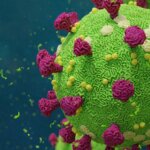A study conducted among rodents demonstrated that childhood trauma could hinder response to multiple sclerosis treatment, even affecting the condition’s trajectory of development.
Conducted at the University of Illinois at Urbana-Champaign, the series of experimentation led to the conclusion that trauma during early childhood was associated with a higher risk of an autoimmune disorder and a failure to respond to its treatment.
The study was published in Nature Communications.
“Environmental triggers have important functions in multiple sclerosis (MS) susceptibility, phenotype, and trajectory. Exposure to early life trauma (ELT) has been associated with higher relapse rates in MS patients,” the study says.
“Our results indicate that ELT alters experimental autoimmune encephalitis phenotype via downregulation of β1 adrenergic signaling in immune cells,” the findings determined.
“These results have implications for the effect of environmental factors in provoking disease heterogeneity and might enable prediction of long-term outcomes in MS.”
The study was authored by Yee Ming Khaw, Danish Majid, Sungjong Oh, Eunjoo Kang & Makoto Inoue.


